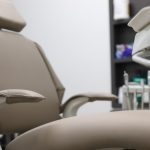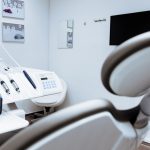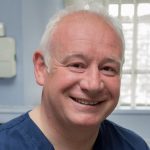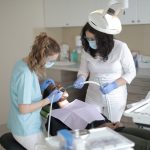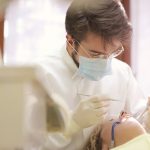Jonathan Jacobs, Head of Healthcare and Dental Law at Prosperity Law Solicitors, provides a summary of the latest developments insofar as a return to dentistry is concerned.
As the dental profession begins to wake up again after almost three months in slumber, there are many burning questions that will need to be addressed. Some relate to how dental practices will be permitted to operate whilst at the same time ensuring that there is adherence to being Safe, Caring, Responsive, Efficient and Well-led and others relate to the financial impact that compliance with these principles will have on the economics of dentistry as a business.
As many of you will know, over the course of the 13 weeks since lockdown, there have been many discussions, some of these at a very high level and which have resulted in several letters of preparedness being issued by the Chief Dental Officer, meetings of the hierarchy of general dental practice and postings between practitioners in the many social media groups that already existed and which have been formed to deal with the present situation.
It is not the purpose of this article to try and distinguish between NHS and private dentistry. Practitioners in both spheres have been markedly affected by the closure of all dental practice on 25th March 2020.
Hark back to the letter of preparedness of 25th March 2020 in which the CDO confirmed that payments to NHS contract holders under the GDS contract were to be maintained at 1/12 monthly instalments on the understanding that there would be an abatement to take into account lower overheads during the period of lockdown (the amount of which is yet to be decided) and that Principal Dentists would maintain levels of pay to all Performers, Locums, DCPs and other staff whilst at the same time allowing those who wish to be furloughed to do so and those who wish to be redeployed to the “front line” to be so seconded if that was their wish.
At that time, and indeed even at the time of my writing, there has been no decision formally announced as to what , if anything is to happen as regards the performance of the many GDS contracts that have now restarted after having an “extended holiday”.
We know that measures were put in place to account for the fact that March 2020 was an extremely fallow month in terms of performance and that practitioners could choose to either start the last NHS contract year on 1st March 2019 and run through until 29th February 2020 or could begin the year on 1st April 2019 and end it on 29th February 2020, taking an average of a 3 month UDA performance to act as the 12th month.
Why then, has it been the case in some instances that Principals have attempted to suspend payments to Performers and Locums or to attempt to significantly reduce these, despite the practice being paid as normal?
The BDA has suggested that where, as a result of Covid-19, a practice is struggling financially and a Performer is not being properly remunerated, the Principal should discuss the situation with the Performer and both parties should reach an agreement as to how this should be dealt with. For the Principal to impose a material change on a Performer is a breach of the terms of engagement with the Performer and could very well lead to a dispute between them.
Even given the fact that practices are now preparing to re-open if they have not done so already, with deep cleaning happening, fallow time between patients, and attempts being made to secure the necessary PPE in order to practice safely, issues between Principal and Performer will not disappear simply as a result of being back in work.
In the NHS, Principals are arguing that they will receive an abated payment from NHS England and so should only have to pay an abated fee to the Performer. Not so. It was made clear that continued receipt of the monthly contract payments would only happen if the Principal gave assurances that Performers and Locums would continue to be paid in full at pre-Covid levels.
It is imperative that any disagreements are resolved if a smooth transition into “New Dentistry” is to be achieved. Any disputes that are left festering and unresolved may well end in mediation proceedings, which, if not successful, will lead to litigation.
However, at the root of the current situation is the fact that the guidelines that were laid out in the CDO’s Letter of Preparedness on 25th March 2020 are simply not fit for purpose and appear to have been rushed through as a knee-jerk reaction to the endemic problems that NHS dentistry was likely to face if nothing was done.
Why are they not fit for purpose? Quite simply, because they did not carry any penal consequences to the contract holders should payments not be made as expected. All that the guidelines stated were as follows:
- That NHS England would continue to make the 1/12 monthly payments under the GDS contract;
- That all staff including performers, locums, DCPS and staff were to receive their pre-Covid pay;
- That staff were to be made available for redeployment or could be furloughed if necessary;
- That there would be some abatement to take account of the reduction in overheads
Whilst most Principals may be heeding these guidelines, a number of situations have arisen showing that there are flagrant breaches being committed. For example:
- A Principal changing the locks on their surgery and refusing a Performer access;
- Reduction in a performer’s pay by 65%;
- Termination of a performer’s contract without notice;
- Forcing a locum to accept a position as a performer with a 2-year lock-in or relinquish their position;
- Deduction of performer’s pay to take account of practice overheads
- New jobs for performers terminated or UDA payments drastically reduced to current levels of activity instead of pre-Covid levels (just because the performer has not historic NPE figures)
Performers are paid based on their Net Pensionable Earnings (NPE). NPE takes account of lab expenses, the statutory levy to NHS England. It is not an opportunity for Principals to deduct monies from Performers and Locums without agreement. Despite the BDA suggesting that an appropriate reduction in pay should be made, the Principal has a contract with both NHS England and with the Performer and to do so without agreement places the Principal in breach of contract on both counts.
The problem is that NHS England did not properly think through the consequences of non-compliance with the guidelines of 25th March and in many cases the Principals have used the continued funding as a means of supporting their own loss of income without consideration for the dentists who keep their practices running and patients happy. Not great economic sense given that dentistry is a business!
However, the resolution of the issue goes deeper than that. Due to the fact that these are guidelines and not legislation, they can only be recommended, not enforced. Failure to follow them is, currently, not capable of any penalty and this might explain the conduct of many practice owners in the way Performers and Locums are being treated.
NHS England have been approached and are disinterested, claiming that they will not get involved as the disputes are contractual between Principal and Performer/Locum Dentist and outside their remit. The BDA are unwilling to support the Performers who form the vast majority of their membership and who have been quite happy to pay their annual fees but now do not quite know why.
My firm has been approached by the National Association of Dental Associates, a group of dental performers and locums who have been adversely affected by what can only be described as unscrupulous Principals, who have failed to appreciate the much needed support given to them by NHS England and the importance of their roles as practice owners in maintaining harmony and morale at their respective practices.
The group, under the Facebook name “Dentists, Associates”, have set up a funding page at https://gf.me/u/x9m48r and this is their message below. They are looking to the profession to support their cause by donating to the fighting fund.
Who are we?
We are Performer and Locum Dentists at NHS dental practices that stopped treating patients face to face on the 25th March 2020 at the direction of NHS England.
Our case
From 25.03.2020 the profession adopted the guidance of the CDO which prohibited all performer dentists and locum from performing routine and emergency dental treatments in England.
In a bid to ease the obvious financial worries that this would cause, the CDO set out guidelines for GDS contract holders to continue to receive their 1/12 monthly payments on the condition that all staff, performers (including locums) were paid at pre Covid levels.
Abatement was referred to as lab expenses and overheads would be significantly reduced but as yet no figure has been confirmed and in any event this would not have impacted on a performer dentist’s pay.
We are raising funds to initiate a legal challenge to compensate all NHS performer and locum dentists for the losses suffered during the enforced period of closure and to seek a revision of the NHSE guidelines to include penalties for Principals who have failed to pay dentists their full entitlement.
What are we trying to achieve?
We feel that none of the bodies representing the profession have sufficiently protected the interests of locums or performers. We want those dentists to be compensated for losses sustained at the hands of the GDS contract holders and for NHSE to see that the current guidelines are not fit for purpose.
What is the next step in the case?
We have instructed Prosperity Law, a law firm who specialise in dental legal cases to take matters forward and to seek the advice of a leading Barrister as to the merits of any action.
How much we are raising and why?
We want to raise £10,000.00 at this stage to allow sufficient funds to instruct lawyers, obtain the barristers advice and draft the documents necessary in order to raise a legal challenge to the NHS England guidelines and separately, to enable dental performers to pursue their Principals.
If you are a dentist who is likely to benefit as result of this action, a contribution of £50 at least would help get the ball rolling as soon as possible if it is within your means.”
It will only be with the required support that change can be effected. The reality that neither NHS England nor the BDA seem willing to assist, leaves the dental professionals themselves with little alternative than to fight the cause for themselves.
For more information, Shazia Kalsoom (Shazia.kalsoom1@nhs.net) and Robert Jamieson (jamieson06@btinternet.com) are the dentists coordinating the effort. Jonathan Jacobs can be reached at jonathan.jacobs@prosperitylaw.com.





